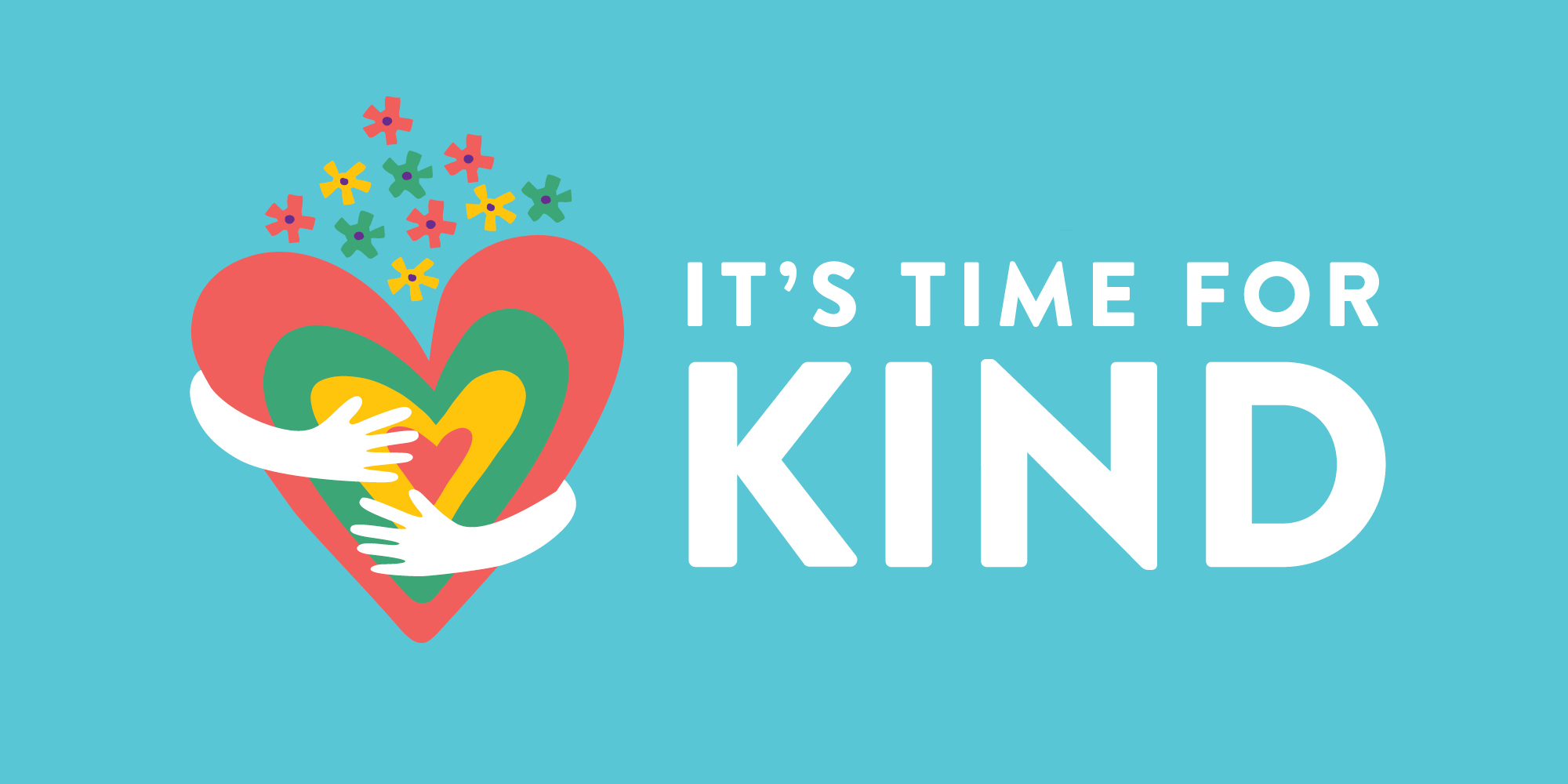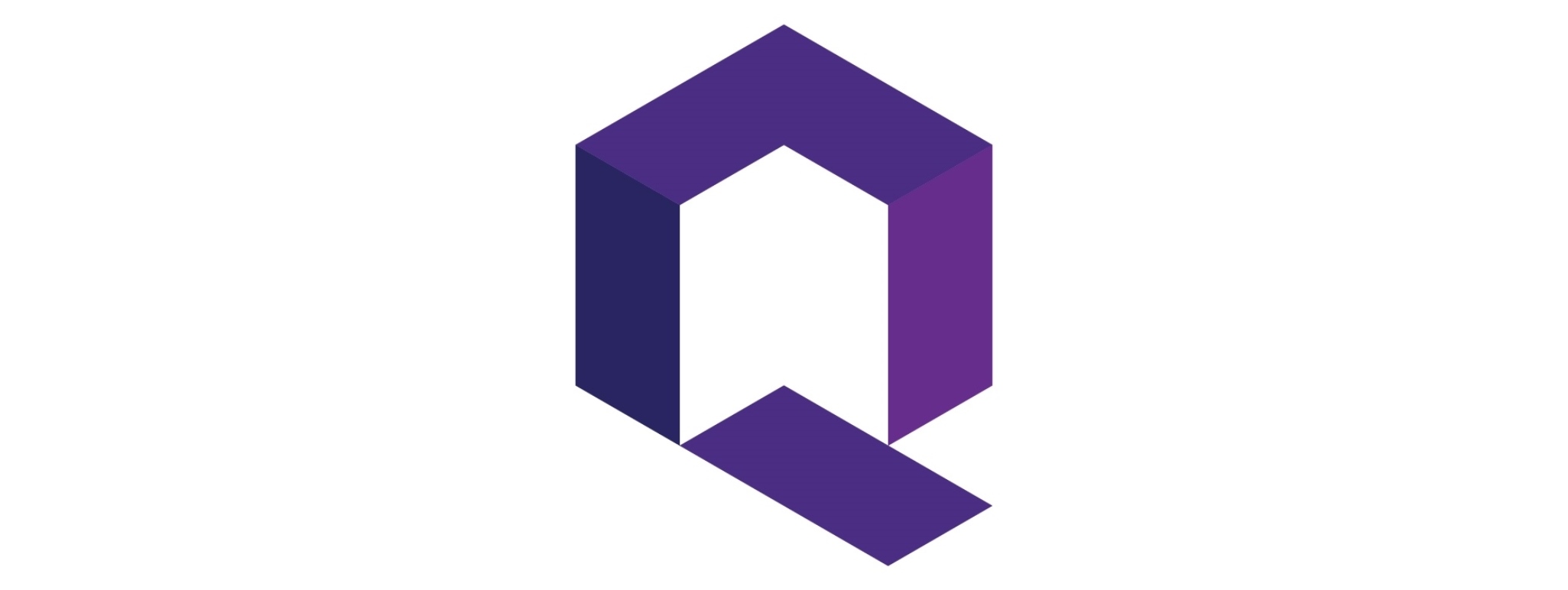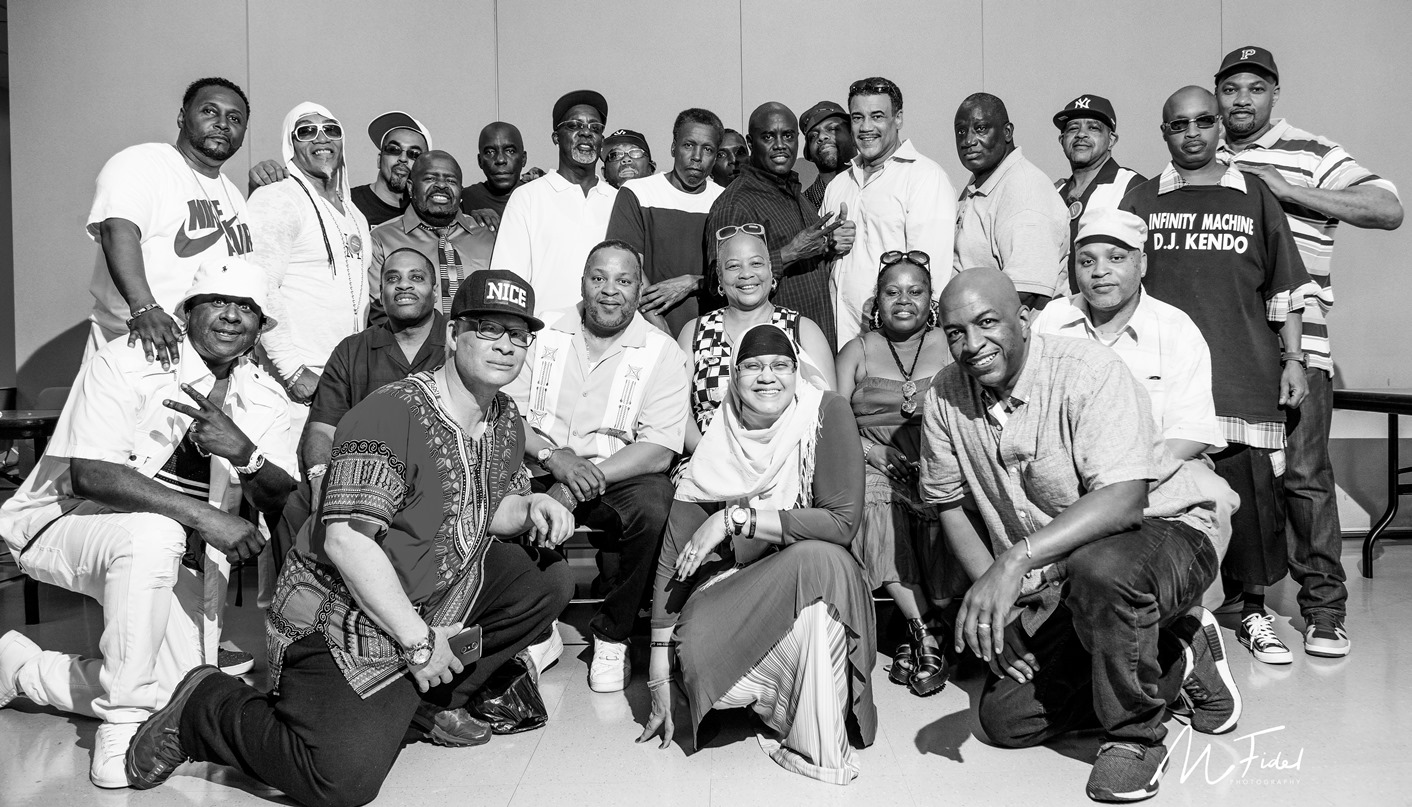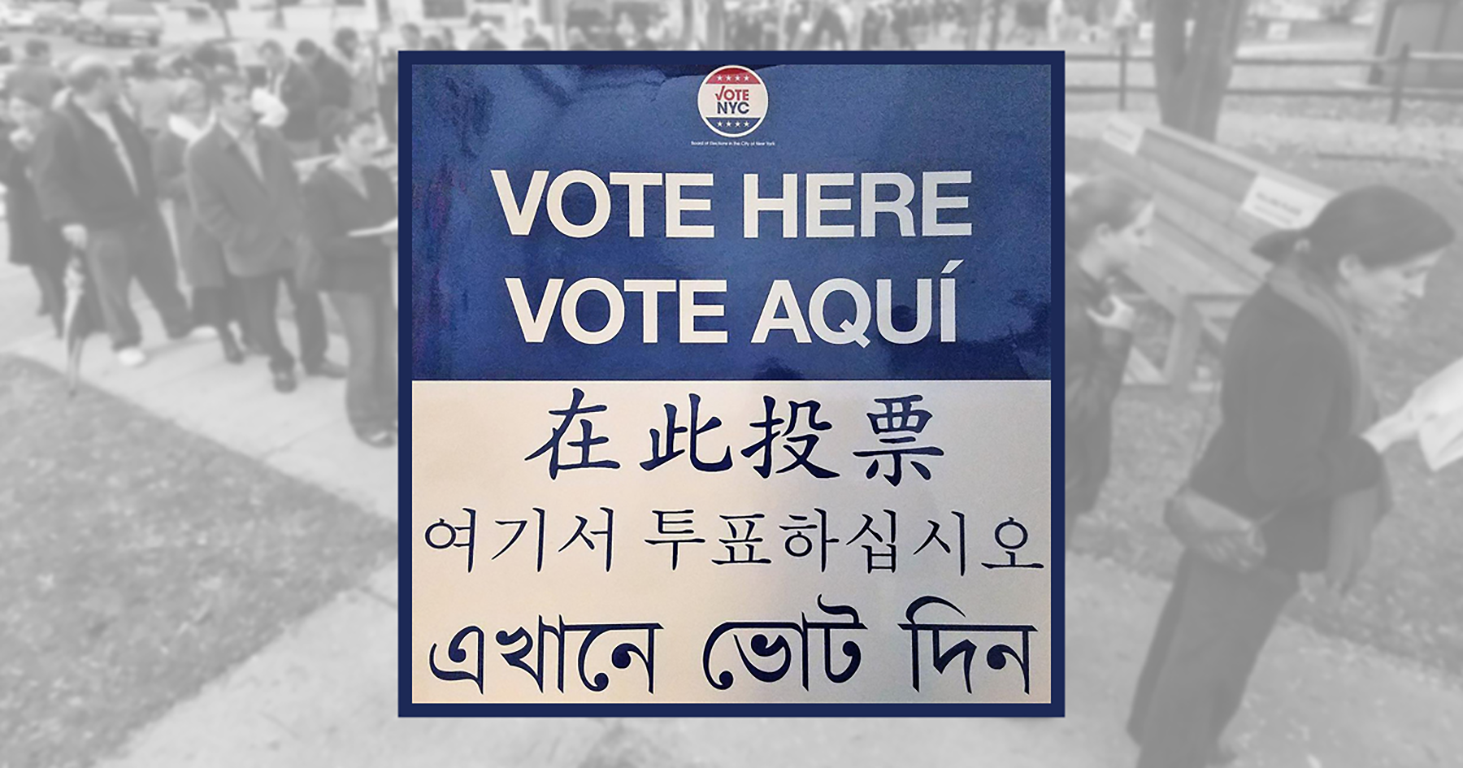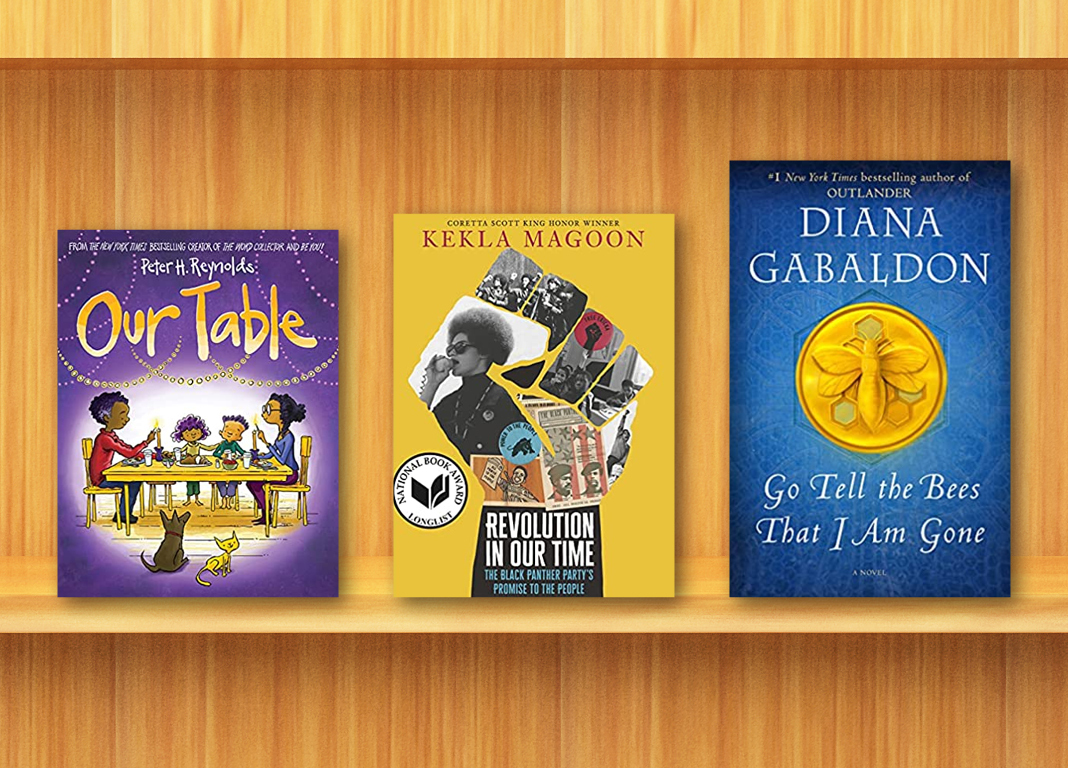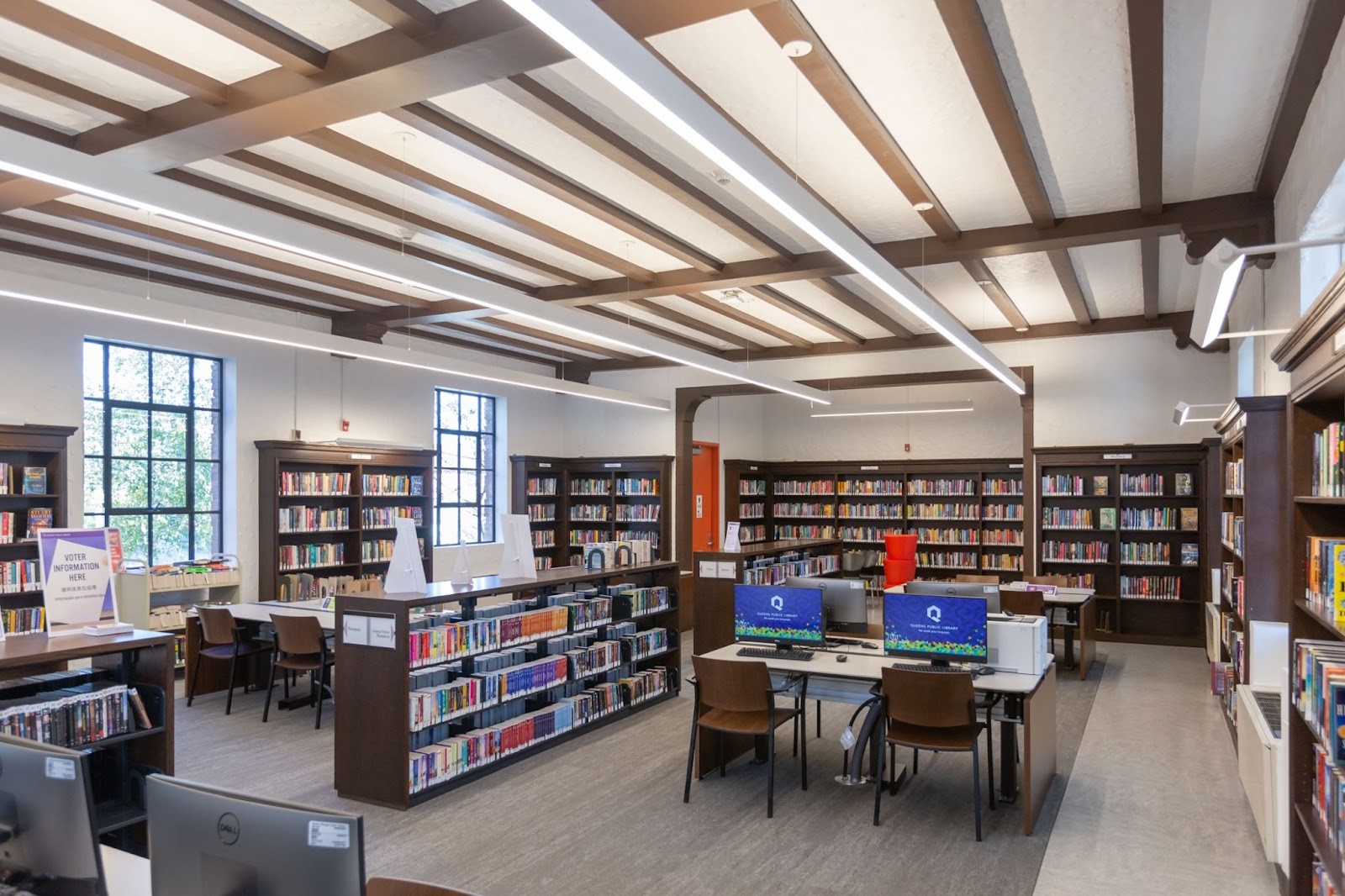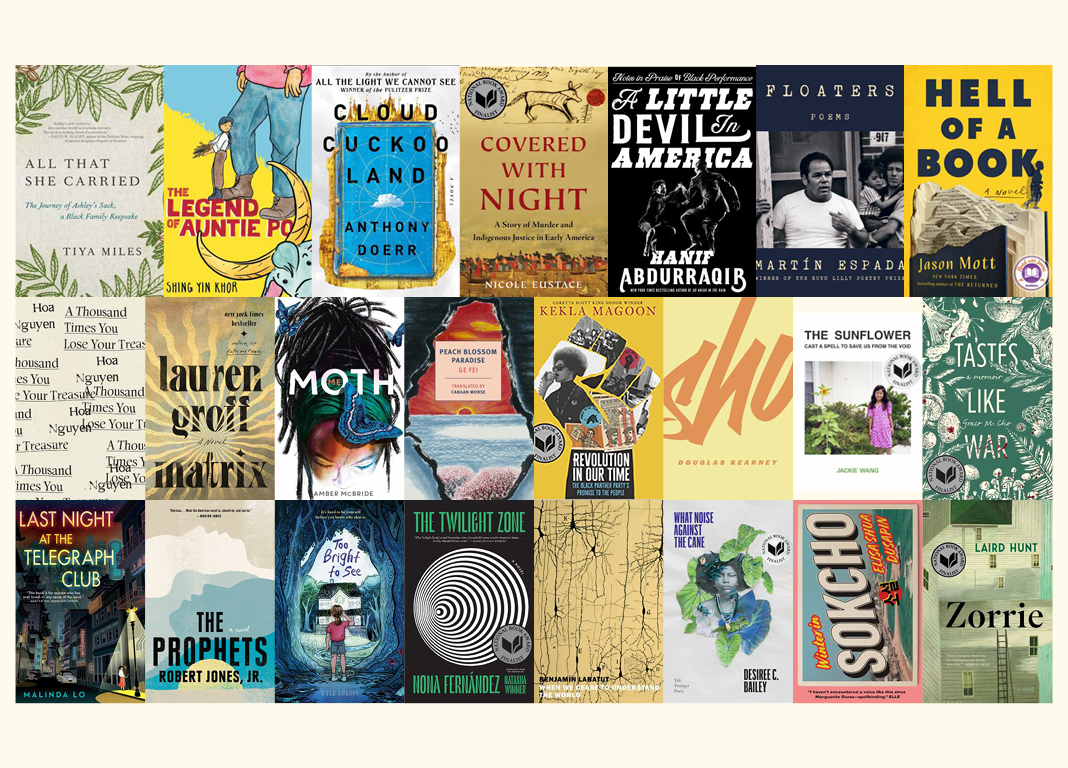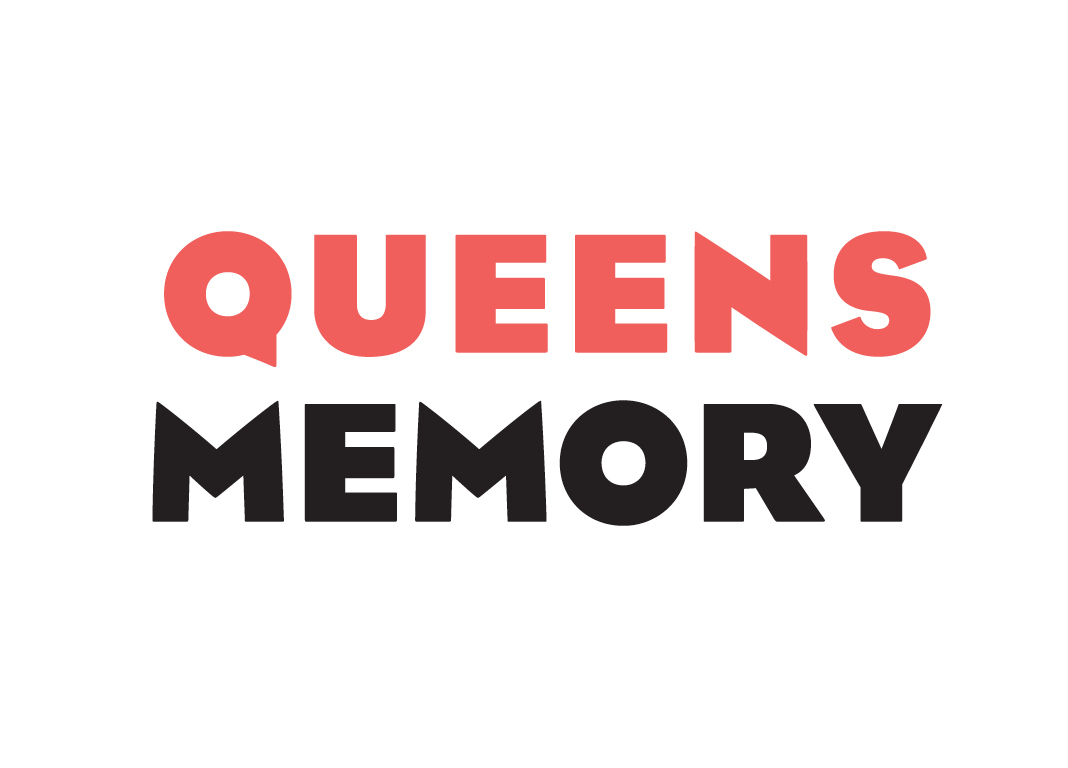FOR IMMEDIATE RELEASE
Monday, November 15, 2021
CONTACT:
Ewa Kern-Jedrychowska, Queens Public Library, ekern@queenslibrary.org
QPL’S Annual “It’s Time For Kind” Initiative to Focus on the Importance of Resilience and Caring for Other People as the City Recovers From the Pandemic
“It’s Time for Kind,” QPL’s System-Wide Holiday Initiative, Includes To-Go Appreciation Packages for the Public, a Food Drive and Activities for People of All Ages to Inspire Acts of Kindness
(Glendale, NY – November 1, 2021) Now in its 20th month, the pandemic has reinforced the importance of resilience and caring for other people during periods of great difficulty. As the city continues to recover from the devastating effects of COVID-19, Queens Public Library is launching its annual “It’s Time for Kind,” a seven-week initiative promoting everyday acts of kindness to help Queens communities connect and support each other this holiday season.
The initiative, now in its fourth year, begins today and will last through the end of the year, offering customers programs, events, and activities - online and in the branches - that inspire acts of kindness and promote the spirit of goodness, generosity and neighborliness.
All QPL branches will be distributing to-go appreciation packages, which will include, among other things, coloring pages, booklets for writing notes of appreciation, and a QPL 125th Anniversary bookmark. They will also contain materials and instructions necessary to contribute to a Community Mosaic made from canvas that depicts the meaning of kindness. The mosaic will be displayed next spring at a QPL location.
Throughout our libraries, customers will participate in kindness-themed crafts and storytimes and ESOL students and teens will write greeting cards to our homebound customers. QPL has also created walls of kindness with weekly prompts, where the public will have a chance to post stories about acts of kindness they have experienced, or offered to others.
The initiative will also include a scavenger hunt on Wednesday, Nov. 17 at 4 PM at East Flushing Library (for children ages 5-10); making cards for hospitalized children on Tuesday, Dec. 7 at 4 PM; and creating a community weaving tapestry at Fresh Meadows Library.
QPL will also present numerous cultural performances over the next six weeks. On Saturday, Dec. 11 at 3:30 PM the Library will host on its Facebook Live page “Peace, Joy, and Love,” a classical vocal music concert with the most beloved arias, duets and songs by famous composers, from “Sull’aria” from “Le Nozze di Figaro” by Mozart to “Serenade” by Tchaikovsky and a medley of favorites songs like “Silver Bells,” “Winter Wonderland,” and “Frosty the Snowman.”
On Friday, Nov. 19 at 7 PM, Queens Public Library will gather a circle of poets who will share their work, telling stories celebrating the power of kindness and empathy in poetry. This special evening of readings, held on WebEx, will feature original work by Maria Lisella, Queens Poet Laureate and Academy of American Poet Laureate Fellow, and a circle of Thursday Morning Poets, Nadia Bongo, Marcia Elwarari, Luvon Roberson, and Judy Trupin.
QPL’s community archiving program, Queens Memory, will also offer workshops on WebEx titled “Recording Your Family Stories” on Thursday, Nov. 18 at 7 PM and Friday, Dec. 17 at 2 PM, teaching participants how to record a conversation with a loved one in person or over the phone or computer, how to ask good questions, and how to share the recording with family and friends.
As food prices have increased substantially, as have the number of visits to food pantries since the beginning of the pandemic, QPL has partnered once again with the Food Bank for New York City. From December 1 to 31, seven QPL locations will serve as drop-off sites for canned food donations: Broadway, Cambria Heights, Central, Far Rockaway, Glen Oaks, Peninsula and Ridgewood. All donations will support local food pantries.
The complete schedule of QPL’s It’s Time for Kind events and curated lists of books emphasizing kindness are available here.
###
About Queens Public Library
Queens Public Library is one of the largest and busiest public library systems in the United States, dedicated to serving the most ethnically and culturally diverse area in the country. An independent, non-profit organization founded in 1896, Queens Public Library offers free access to a collection of more than 5 million books and other materials in multiple languages, technology and digital resources, and more than 87,500 educational, cultural, and civic programs a year. It consists of 66 locations, including branch libraries, a Central Library, seven adult learning centers, a technology lab, and two teen centers.
Queens Public Library mourns the loss of our Trustee Ed Sadowsky, a distinguished former City Council member and civic leader, who passed away last night, surrounded by his family. He was 92.
The New York Times posted this obituary about him on its website earlier today.
Ed was appointed to the Board of Trustees in 2008, in large part because of his many contributions to the Queens Public Library system while he was on the Council. One of his greatest accomplishments — which he recalled when he was honored at our 2018 gala — was persuading former Mayor John V. Lindsay to allocate funding in 1973 to help keep the Langston Hughes Community Library and Cultural Center open at its original home in a former Woolworth storefront on 100th Street and Northern Boulevard before its current building was constructed.
Ed also was a tireless advocate for the construction of Hunters Point Library. He was instrumental in securing the site and the City’s financial support for the building, understanding the critical need for a library as the formerly industrial neighborhood shifted to a thriving residential community.
Throughout his tenure on the Board, Ed commanded the respect of his peers and always made clear the Library was his number one priority. He was funny, thoughtful and had a great legal mind.
We will miss Ed terribly. We wish his family members and all of those who loved him peace and send them our deepest condolences.
Dennis M. Walcott
President and CEO, Queens Public Library
For the next in our College Readiness series, Amber Peters, aka Mizz P, a college and career strategist and workshop leader, shares information on finding college scholarships.
She suggests starting your scholarship quest with search engines like Fastweb.com and Scholarships.com – “they are designed to send you scholarships that match your student profile. This increases your eligibility for specific awards, thereby making it easier for you to find and win money-saving scholarships.” Peters continues, “I would also check your local community (businesses, corporate entities, non-profits) and your network (friends, family) to see what scholarships exist right in your own backyard.” For New York and Queens residents, she recommends Queens-based foundations, non-profits, local business, and your elected officials. “Sometimes your councilman or assemblyman may have funds to give away to talented residents in their district. It never hurts to ask.”
How much of a college education can you expect to pay for using scholarships? Peters says this varies and is largely dependent on the work you put in before and during your search. “The more work you do, the more money you can win.” Scholarships can range from $50 to the full cost of college tuition, but none are guaranteed.
Peters explains that knowing which scholarships you qualify for is possible if you read the fine print. All scholarship sponsors provide eligibility requirements to ensure they get the right pool of applicants. She advises checking the sponsor’s website or application for more details.
What materials do you need to apply for scholarships? Each opportunity is different, but Peters suggests “you should have an essay that clearly describes why you want to go to college and how winning a scholarship will impact your future. Next is a resume that demonstrates your involvement. Some scholarship sponsors will ask you to submit this document or ask you to list your involvement on their site. Last is a brag sheet in case you need recommendations to support your application. The brag sheet is designed to give your recommenders more details to help them draft the perfect letter for you. The more details you add, the better they can sell your application.”
Finally, she advises that looking for scholarships is a full-time job. “You have to stay on top of it in order to be successful which means applying early and often. Platforms like FastWeb.com and Scholarships.com allow you to start looking as early as ninth grade. You can also start keeping a log of popular scholarships you hear about so you have them ready when it's your turn to apply. Juniors and seniors should be actively applying for scholarships all year round. I recommend setting aside a specific weekly time dedicated to research/prep and a separate time for submitting applications. Even after they are admitted, they should continue this practice to ensure they always have enough money to get through college.”
Amber Peters A.K.A. Mizz P. is a college and career strategist & workshop leader. She is the founder of On Track With Mizz P. and creator of the On Track For College App
See all of our upcoming College Readiness programs on our calendar.
Tags
A picture from our 2017-2019 Queens Hip Hop Pioneers Photo Exhibit, curated by MFidel Photography.
November is Hip Hop History Month! Join us and QPL Hip Hop Coordinator (and music legend) Ralph McDaniels all month long to celebrate hip hop and its legacy as a global force for culture, civil rights, and, of course, music!
Hip Hop Art Exhibit—17: The Revolution Will Be Visualized
This exhibit featuring a group of visual artists from around the U.S. is presented by Andre Leroy Davis and will run at Central Library through January 17, 2022 (Martin Luther King Day).
In a time of outrage, 17 African American artists unite in honor of Trayvon Martin and mourn the fact that he was murdered after only seventeen years of life. Different mediums, different styles, different perspectives, different visions; all with one mission to visually convey our love and support for one another, our people, but especially the life paths, struggles, pains, love, success, hardships, failures, and triumphs of the young Black male. In order to revolutionize how the world views the Black male, there must be a revolt: the Revolution will be Visualized.
Central Library, 89-11 Merrick Boulevard, Jamaica
DJ 101 with DJ Wiz of Kid 'n Play
Hip Hop History Month Virtual Programs
All these programs can be watched on QPL’s Instagram page and as replays on QPL’s IGTV channel.
Live Talk from Queens with Ralph McDaniels
Join QPL Hip Hop Coordinator Ralph McDaniels as he talks with his special guests about hip hop, literature, community, culture, and a wide variety of topics!
Tuesdays, November 9, 16, and 30, 3pm
The History of Hip Hop in Queens with Bugsy of WBLS
Join Ralph McDaniels and Queens resident and radio personality Fred "Bugsy" Buggs of WBLS for a special edition of Live Talk from Queens about how Queens hip hop history started!
Tuesday, November 23, 3pm
Ralph McDaniels’ All Vinyl 45s Hip Hop and Soul Brunch
Join Uncle Ralph for his Instagram Live all-vinyl DJ sets of hip hop, soul, and old-school favorites, every Saturday at 1PM!
Saturdays, November 13, 20, 27, 1pm
Hip Hop History Books
Check out our Hip Hop History Month eBook list on OverDrive.
Here's a special list of books about hip hop curated by Ralph McDaniels.
Mama Phife Represents: A Verse Memoir by Cheryl Boyce-Taylor
Watch Cheryl Boyce-Taylor's interviews with Ralph McDaniels: Interview One (also with Roxanne Shanté), Interview Two (the 30th anniversary of A Tribe Called Quest’s The Low End Theory)
Miss Pat: My Reggae Music Journey by Pat Chin
Watch Pat Chin's interviews with QPL President & CEO Dennis M. Walcott and Ralph McDaniels
Rap Tees: A Collection of Hip Hop T-Shirts 1980-1999 by DJ Ross One
Watch DJ Ross One's interview with Ralph McDaniels
DMC #1 (Darryl Makes Comics) and Ten Ways Not to Commit Suicide: A Memoir by Darryl "DMC" McDaniels
Watch DMC's interview with Ralph McDaniels
The Motherlode: 100+ Women That Made Hip Hop by Clover Hope
Watch Clover Hope's interview with Ralph McDaniels
The Marathon Don't Stop: The Life and Times of Nipsey Hussle by Rob Kenner
Watch Rob Kenner's interview with Ralph McDaniels
Hip Hop at the End of the World: The Photography of Ernie Paniccioli
Where I'm From: Growing Up Hip Hop by Ron Amen-Ra Lawrence
I Know My Rights: Bill of Rights by Mysonne Linen
Watch Mysonne Linen's interview with Ralph McDaniels
Sweat The Technique by Rakim
A Cypher in Queens
Take a look back at our 2019 hip hop art exhibit with Sherwin Banfield at Central Library in Jamaica.
Hip Hop in Queens Historical Collection on Aviary
Watch these special videos of past hip hop programs at Queens Public Library, including interviews with KRS-One, DMC, Daymond John, and many more!
Do you have children ages 0-17? Raising children can be expensive, but there's financial help waiting for you, the Child Tax Credit. You may be able to claim half of the fully refundable Child Tax Credit - worth up to $3,600 per child - as advance monthly payments in 2021 and the other half as a tax refund in 2022.
To get advance monthly payment in 2021 if you were not required to file taxes, you must sign up by November 15, 2021. Use https://www.getctc.org to receive payments.
If your information is processed by the IRS by the end of November, you can receive a lump sum payment of up to $1,800 per child 0-5 and $1,500 per child 6-17 in December and you'll receive the other half of the tax credit when you file your taxes in 2022.
You are eligible for the full tax credit if you have no income or make up to
- $75,000 or less for single filers or married couples filing separately
- $112,500 or less for heads of household
- $150,000 or less for married couples filing a joint return or qualifying widows or
- widowers
You can receive payments even if you are incarcerated, experiencing homelessness or have no income.
Find Out More
Learn more here. Read frequently asked questions here. Get the basic facts here.
Get Help Getting Your Payments
An IRS certified VITA/TCE volunteer preparer with NYC Free Tax Prep can guide you on how to make sure you get your payments. Services are available year-round. For information or to book an appointment: Call 311 and say “tax preparation” or visit nyc.gov/taxprep.
Tuesday, November 2, 2021 is Election Day, and several of our branches will serve as polling sites.
Queens residents will cast their votes at the Briarwood, Central, East Elmhurst, Elmhurst, Forest Hills, Kew Gardens Hills, Lefferts, North Forest Park, Peninsula, Ridgewood, Seaside, and St. Albans libraries, from 6AM to 9PM.
Please Note: Elmhurst Library will be closed to serve as a polling site; the other branches will be open for public service.
Is your library where you should vote? Please visit https://findmypollsite.vote.nyc or call 866-VOTE-NYC (866-868-3692) to confirm the correct location for you to vote in your neighborhood!
Spotlight on New Book Releases in November and December
Here are some of the new books coming to the Library for adults, teens, and children—from picture books for children and fantasy for young adults to novels and nonfiction for adults as well as books for Native American Heritage Month.
November 2, 2021
Our Table (children’s)
by Peter H. Reynolds
New York Times bestselling creator Reynolds returns with a tale that is perfect for the holidays, about a young girl yearning to reconnect with her family over a meal without the distractions of modern life and technology. Booklist and Kirkus both starred this picture book.
November 9, 2021
Out of My Heart (children’s)
by Sharon M. Draper
In this sequel to the bestseller Out of My Mind, Melody, a 12-year-old diagnosed with cerebral palsy, decides to brave summer camp, seeking a place where she can have make friends and have adventures on her own. Both Kirkus and Publishers Weekly starred this book.
November 9, 2021
Year of the Reaper (YA)
by Makiia Lucier
Starred by School Library Journal, this is a romantic fantasy in which a noble lord survives a plague and a prison only to meet a historian and team up to figure out why an assassin targeted those closest to the queen.
November 16, 2021
The Nobleman's Guide to Scandal and Shipwrecks (YA)
by Mackenzi Lee
Lee’s latest is the finale to the New York Times bestselling series featuring the Montague siblings. In the conclusion, teenage Adrian is sent on a pursuit of his adult siblings across the world after finding a piece of spyglass that belonged to his late mother.
November 23, 2021
Go Tell the Bees that I Am Gone (adult)
by Diana Gabaldon
The newest installation of Gabaldon’s New York Times bestselling Outlander series, this time-traveling fantasy and romance takes place on the eve of the American Revolution.
November 23, 2021
Revolution in Our Time: The Black Panther Party’s Promise to the People (YA)
by Kekla Magoon
A finalist for the 2021 National Book Award, this detailed history for teens which contextualizes the Blank Panther Party in the Black American experience was starred by Booklist, The Horn Book, Kirkus, Publishers Weekly, and School Library Journal.
December 7, 2021
Beasts of a Little Land (adult)
by Juhea Kim
Booklist and Kirkus both starred this critically acclaimed debut novel. It tells the story of the Korean independence movement through the experiences of a young woman sold as a courtesan and a poor hunter’s son who survives as a beggar.
December 7, 2021
Light for All (children’s)
by Margarita Engle and illustrated by Raúl Colón
Starred by Kirkus, this book celebrates and honors the many contributions immigrants have made to the United States.
December 7, 2021
Racism, Not Race (adult)
by Joseph Graves Jr. and Alan H. Goodman
Starred by Kirkus, this book features two distinguished scientists answering questions about race, racism, and biology as they demonstrate that racism created race as well as racial inequities.
December 14, 2021
Tomboy: The Surprising History and Future of Girls Who Dared to be Different (adult)
by Lisa Selin Davis
Elaborating on a viral New York Times op-ed, the author explores our notions of gender and celebrates those who do not conform to expectations.
Books for Native American Heritage Month
November 16, 2021
An Afro-Indigenous History of the United States (adult)
by Kyle T. Mays
Afro-Indigenous historian Mays presents the first intersectional history the Black and Native American struggle for freedom in America, showing how both groups have continuously worked for justice and sought to end white supremacy.
November 23, 2021
A Snake Falls to Earth (YA)
by Darcie Little Badger
This coming-of-age story was longlisted for the National Book Award and starred by Booklist, Kirkus, and Publishers Weekly.
The improvement and rehabilitation project at Glendale Library brings a reorganized design to improve functionality throughout the three floors.
FOR IMMEDIATE RELEASE
Monday, November 1, 2021
CONTACT:
Shoshana Khan, NYC Department of Design and Construction, KhanSho@ddc.nyc.gov
Ewa Kern-Jedrychowska, Queens Public Library, ekern@queenslibrary.org
Queens Public Library, NYC Department of Design and Construction, Elected Officials and Community Leaders Celebrate the Reopening of Glendale Library Following Accessibility, Rehabilitation and Improvements Project
Project adds accessible entrance and elevator, upgrades the interior and restores the rear garden
(Glendale, NY – November 1, 2021) Queens Public Library (QPL) President and CEO Dennis M. Walcott and NYC Department of Design and Construction (DDC) Commissioner Jamie Torres-Springer joined Queens Borough President Donovan Richards, Congress Member Grace Meng, State Senator Joseph Addabbo, Assembly Member Jenifer Rajkumar, Council Member Robert Holden, library staff and community leaders today to celebrate the reopening of Glendale Library. The project, with design and construction cost of $6.9 million, was managed by DDC for QPL to make the library accessible to all patrons, upgrade the interior and restore the rear garden.
“The renovation of Glendale Library is a remarkable expression of civic pride and reflects our city’s firm commitment to infrastructure that advances learning and opportunity for our changing communities,” said Queens Public Library President and CEO Dennis M. Walcott. “We are extremely grateful to our current and former City leaders for securing the funds needed for the upgrades, to our staff for their commitment and hard work and to the entire Glendale community for their unwavering support for this project, so beautifully executed by the NYC Department of Design and Construction. We look forward to serving the public from this outstanding building for generations to come.”
“We're proud to reopen Glendale Library today, with improvements that celebrate historic features of this beautiful branch while making upgrades to make the branch compliant with the Americans with Disabilities Act,” said DDC Commissioner Jamie Torres-Springer.
“It is a beautiful day in Glendale with the grand reopening of its beloved library. I am glad to see the original grandeur of the beautiful Glendale Library intact while also adding a modern twist, including full accessibility,” said Queens Borough President Donovan Richards Jr. “These additions, along with the other work done as part of this project, has produced a first-class library that will meet and exceed the educational, cultural, and occupational demands of this vibrant neighborhood for decades to come. My heartfelt congratulations on a job well done go to Dennis Walcott and his entire team at Queens Public Library as well as Commissioner Jamie Torres-Springer and the outstanding staff at the Department of Design and Construction.”
“I’m proud to join the Glendale community in celebrating the reopening of this wonderful facility,” said U.S. Rep. Grace Meng (D-Queens). “As the mom of two young kids, I know firsthand the critical role that libraries play in our neighborhoods. They are crucial to supporting learning and literacy for children, and they help our next generation grow. I thank the Queens Public Library for undertaking these important renovations. The improvements will greatly benefit local families. It will allow more people to take advantage of this facility, and make it an even better resource for the community.”
“What an honor it is to be part of this ribbon cutting ceremony to officially reopen the Glendale Branch of the Queens Public Library,” said State Senator Joseph P. Addabbo, Jr. “This location was in need of some major upgrades, and it is great to see that much of the library’s historic architecture has remained, while giving it new aspects to bring it into the 21st century. At a time when we look with enthusiasm to going outdoors post-COVID, residents of all ages from across Glendale and beyond will be able to enjoy a new look on all three floors of the library, as well as a reimagined rear garden. I would like to thank the Queens Public Library, NYC DDC, and my colleagues in government for their partnership in helping to bring this project to completion.”
“Just as books are more than mere words on a page, a library is much more than a repository of books. It is a place where the entire community comes together. Where our children sculpt their minds. Where jobseekers turn for valuable resources and training. Where we see our friends and neighbors. Because of the fine leadership of President and CEO Dennis Walcott, the Queens Public Library Glendale branch has been restored to its historic grandeur, serving as a cornerstone of our recovery and enriching the community for many years to come,” said Assembly Member Jenifer Rajkumar.
“The renovation and re-opening of the Glendale library has been a longtime coming, and I thank Queens Public Library and DDC for the work they did to get it across the finish line,” said Council Member Robert Holden. “The residents of Glendale will now enjoy a much needed state-of-the-art facility, and have the access to great tools that will allow our city to flourish.”
“It is wonderful to see the restoration of many of the features that have long defined this special building, and the modification of its spaces to offer access to everyone,” said Vincent Arcuri, Jr., the chair of Community Board 5 and a member of the Queens Public Library Foundation Board of Directors. “The library looks spectacular, and we are thrilled that is open once again. On behalf of the Glendale community, I thank the many people who worked so hard to make this day possible. Congratulations to all.”
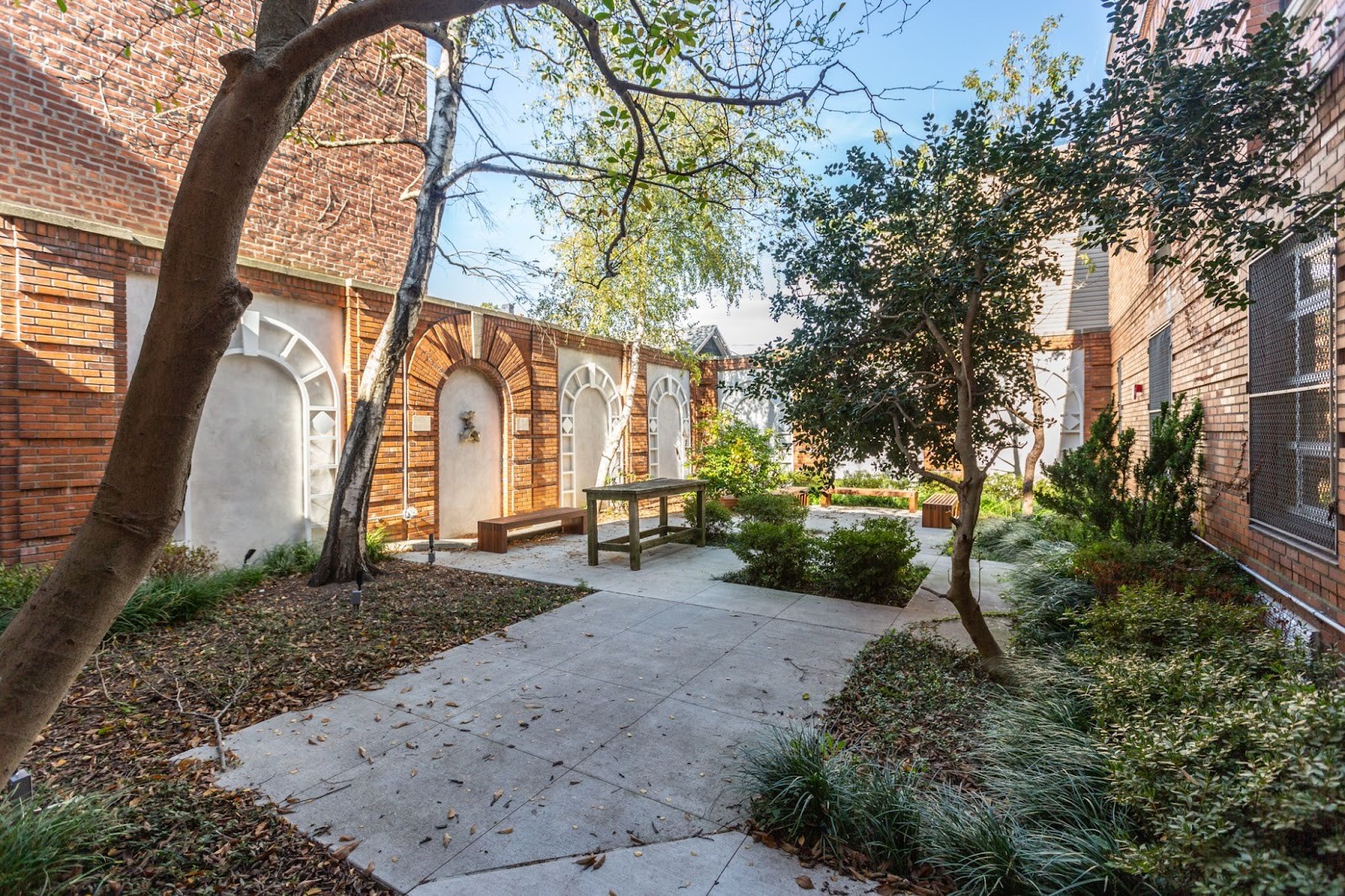
The rear garden at Glendale Library was rehabilitated and features new plantings and restored brickwork along the walls.
The Glendale Library, at 78-60 73rd Place, was constructed in the Italian Renaissance Revival style in 1935 through the federal Works Progress Administration and features 10,800 square feet of space over three levels. The project, designed by Matthew Baird Architects, makes the library user-friendly for all patrons and brings back some of its historic grandeur.
The library was upgraded to be compliant with the Americans with Disability Act (ADA) through the installation of a new elevator serving all levels within the building, an accessible entrance on Myrtle Avenue and an ADA compliant bathroom for staff and patrons. The main entrance and the service entrance were replaced and reconfigured to allow easy access to the library.
The interior spaces were renovated and reorganized to improve functionality. The original reading room and mezzanine were repurposed into new teen and adult reading rooms. The library offices, lounge and workroom were relocated to improve overall circulation and accessibility to the three-level building. The vestibule was restored to the historic configuration.
Parts of the exterior were restored to maintain the library’s historic features. The original features of the Spanish tile roofing over the central gabled section and the clerestory roofing remained and the flat roofing was replaced. Bas-relief medallions located just below the cornice on both street façades and featuring the images of noted poets, authors and philosophers, including Shakespeare, Voltaire, Homer, Dante and Goethe, were restored. The rear garden was rehabilitated and features new plantings and restored brickwork along the walls and the wall fountain was also restored.
The civic presence of this longtime community hub was enhanced with the restoration of the main entrance on 73rd Place. Much of the original decorative details and finishes remain and were restored including the woodwork on the main floor and the historic perimeter shelving. Three large windows that were sealed were reopened in the main reading room to provide views looking out into the rear garden, which was restored to resemble the historic layout and composition of the original garden design.
While the building was being renovated, QPL continued to serve the community through a temporary storefront at The Shops at Atlas Park, which was secured with the assistance of State Senator Joseph Addabbo, Jr. and became a popular destination for local residents and shoppers visiting the mall. The temporary space closed along with all of QPL’s physical locations in March 2020 to help stop the spread of COVID-19.
Funding for this project was provided by Mayor Bill de Blasio, Queens Borough President Donovan Richards and Council Member Robert Holden.
# # #
About Queens Public Library
Queens Public Library is one of the largest and busiest public library systems in the United States, dedicated to serving the most ethnically and culturally diverse area in the country. An independent, non-profit organization founded in 1896, Queens Public Library offers free access to a collection of more than 5 million books and other materials in multiple languages, technology and digital resources, and more than 87,500 educational, cultural, and civic programs a year. It consists of 66 locations, including branch libraries, a Central Library, seven adult learning centers, a technology lab, and two teen centers.
About the NYC Department of Design and Construction
The Department of Design and Construction is the City’s primary capital construction project manager. In supporting Mayor de Blasio’s long-term vision of growth, sustainability, resiliency, equity and healthy living, DDC provides communities with new or renovated public buildings such as firehouses, libraries, police precincts, and new or upgraded roads, sewers and water mains in all five boroughs. To manage this $15.5 billion portfolio, DDC partners with other City agencies, architects and consultants, whose experience bring efficient, innovative and environmentally-conscious design and construction strategies to City projects. For more information, please visit nyc.gov/ddc.
Every year, the National Book Foundation awards National Book Awards in the genres of fiction, nonfiction, poetry, young people's literature, and translated literature. This year's five finalists in each category were announced in October and the winners will be announced on Wednesday, November 17. Nearly 2,000 books were nominated by publishers for the prestigious prizes. Learn more about the awards here.
Read our interview with 2021 National Book Award fiction judge Margaret Wilkerson Sexton from our blog archives.
If you haven't already found your favorite book of the year, there's still time. Check out one of the finalists for a phenomenal read!
Fiction:
Anthony Doerr, Cloud Cuckoo Land Book eBook
Lauren Groff, Matrix Book eBook
Robert Jones, Jr., The Prophets Book eBook
Jason Mott, Hell of a Book Book
Nonfiction:
Hanif Abdurraqib, A Little Devil in America: Notes in Praise of Black Performance Book eBook
Lucas Bessire, Running Out: In Search of Water on the High Plains
Grace M. Cho, Tastes Like War: A Memoir Book
Nicole Eustace, Covered with Night: A Story of Murder and Indigenous Justice in Early America Book
Tiya Miles, All That She Carried: The Journey of Ashley’s Sack, a Black Family Keepsake Book
Poetry
Desiree C. Bailey, What Noise Against the Cane Book
Martín Espada, Floaters Book
Douglas Kearney, Sho Book
Hoa Nguyen, A Thousand Times You Lose Your Treasure Book
Jackie Wang, The Sunflower Cast a Spell to Save Us from the Void Book
Translated Literature
Elisa Shua Dusapin, Winter in Sokcho
Translated from the French by Aneesa Abbas Higgins Book
Ge Fei, Peach Blossom Paradise
Translated from the Chinese by Canaan Morse Book
Nona Fernández, The Twilight Zone
Translated from the Spanish by Natasha Wimmer Book
Benjamín Labatut, When We Cease to Understand the World
Translated from the Spanish by Adrian Nathan West Book eBook
Samar Yazbek, Planet of Clay
Translated from the Arabic by Leri Price
Young People’s Literature
Shing Yin Khor, The Legend of Auntie Po Book eBook
Malinda Lo, Last Night at the Telegraph Club Book eBook
Kyle Lukoff, Too Bright to See Book eBook
Kekla Magoon, Revolution in Our Time: The Black Panther Party’s Promise to the People (Coming soon to QPL)
Amber McBride, Me (Moth) Book
Meral Agish, Queens Memory community coordinator, recently held a workshop on conducting oral histories. Queens Memory is a community archiving program supported by Queens Public Library and Queens College, CUNY. They seek to promote local histories in the community through programming and to collect diverse local histories for their collections, while also providing training and materials to help local residents make oral histories that can be included in the collections. Any connection to Queens is a suitable topic for a Queens Memory interview.
The collection, which has nearly 1,000 interviews, has been in existence for eleven years. It tells the stories of the lived experiences of individuals, but also seeks to contribute to the understanding of the collective memory of a place, time or experience. One example is the COVID-19 project, which documents the pandemic through the eyes of ICU nurses and college students, among others. For QPL’s 125th Anniversary year, the library is collecting library memories and experiences. Interviews can be conducted in any language.
Oral histories complicate historical narratives by providing more and different points of view and serve as new primary sources of information. The idea of sharing authority between an interviewer and interviewee is key to oral history, which works through the idea of collaboration between the two. Interviews often revisit different tellings of events. In one interview that Agish shared, Joey Tabaco, a busboy at the Alaskan Pavilion at the 1964 World Fair included in the Memories of Migration series, covers details about place, personal identity, teenage hobbies, school, work, money, family dynamics, and more. Much of oral history is memory work, exploring the way that people remember.
The first steps to conducting an interview are to contact someone you’d like to interview and explain why you’d like to talk to them. Discuss what you’ll cover and how you’ll record, whether in person, on video or on the phone. If you’re conducting the interview for Queens Memory, ask if they’d like their interview to be archived. This is a great way to expand the history that people have access to and to preserve someone’s story for the future. As Agish says, “Everyone is interesting because no one has lived your life.”
As a repository for interviews, Queens Memory stores, preserves, and shares interviews with the public. However, Queens Memory never holds the copyright for interviews, leaving those in the hands of those who did them.
Before you speak to your interviewee, prepare a list of topics. Think about the person’s first-hand experience and areas of expertise. Think about what you want to hear about or learn more about from them. Have a particular question in mind to start the interview, and listen closely in order to ask follow ups based on what they say to you.
Some topics that Queens Memory recommends are family lore and tradition, education, work and leisure, getting around, neighbors and the neighborhood, faith, change over time, and connections to history. For more specific topic recommendations, visit here.
Agish recommended using open-ended questions, as they are an invitation to share one’s story and offer more information. For example, Tell me more about your other memories of the World’s Fair. A closed question would be one that is answered easily by a yes/no answer, such as Was this your first job? Closed questions can be useful for clarification – for example, You mentioned X; was Y?
Other helpful types of questions are follow-up as well as summarizing and concluding; the last two can be similar. An example of a follow up question would be, What was it like starting at a new high school? A summarizing question would be, Before we move on, is there anything you’d like to add? While a concluding question could be, Before we end, is there anything we didn’t cover? These questions show the collaboration between the interviewee and the interviewer, and the shared authority the interviewer has to determine the topics of the interview.
Agish offered some tips for logistics of interviews, such as confirming the day before. Don’t forget to press record, which seems obvious but is something you can easily forget to do in the excitement of the interview. Remember to ask one question at a time and to give the interviewer time to reflect and gather their thoughts – don’t be afraid of silence. Listen and ask follow-up questions. Ask things they didn’t flesh out yet. If someone is stuck on a topic, you can gently move on to another topic. It also helps to keep an eye on the time so you don’t drain your interviewee by making the interview too long; pay attention to their energy level. People can be distracted or unable to focus. Some are talkative while others are more reticent. Work with your interviewee’s communication style.
If you are recording for Queens Memory, you can use their recording kits.
After an interview, send a thank you note and share the recording with your interviewee. If the recording is for Queens Memory, you’ll want to have them sign the consent form. After you submit the interview, Queens Memory will share a transcript with you that you can edit. Interviewees can edit out discrete portions of the interview that they are uncomfortable with or arrange to be anonymous or use a pseudonym.
Queens Memory’s work broadens our understanding of the history of Queens by including diverse voices. They’re excited to hear from you about interviews you’d like to conduct!
To arrange a one-on-one call or meeting with Meral Agish to discuss interviewing for Queens Memory, email her at meral.agish@queenslibrary.org or contact the Queens Memory team at queensmemory@queenslibrary.org.
Queens Memory will hold another workshop on interviewing on Friday, November 12 at 2pm. Register here: https://queenslib.org/3lVVVOv
